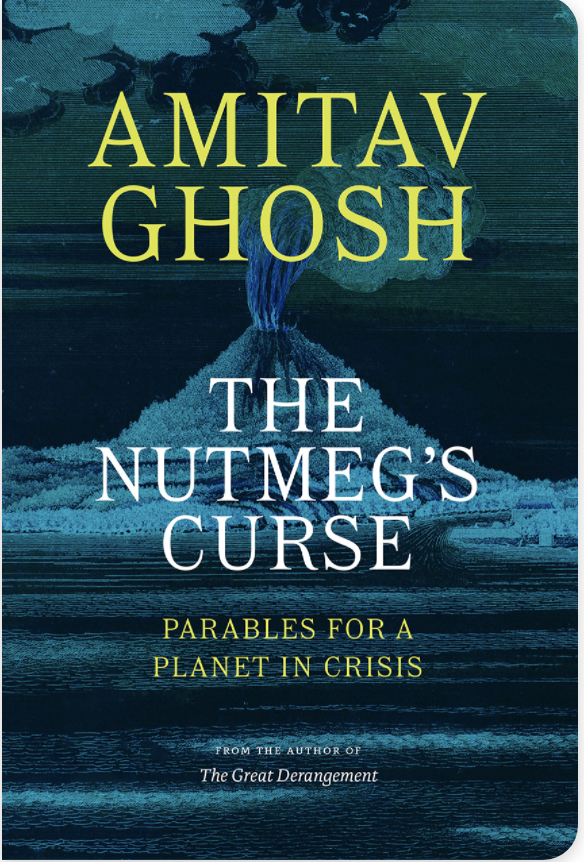
Connection between Colonial Exploitation and Climate Change


Amitav Ghosh finds the origins of our contemporary climate crisis in Western colonialism’s violent exploitation of human life and the natural environment.
The Nutmeg’s Curse, traces our contemporary planetary crisis back to the discovery of the New World and the sea route to the Indian Ocean. He argues that the dynamics of climate change today are rooted in a centuries-old geopolitical order constructed by Western colonialism. At the center of Ghosh’s narrative is the now-ubiquitous spice nutmeg. The history of the nutmeg is one of conquest and exploitation of both human life and the natural environment. The story of nutmeg becomes a parable for our environmental crisis, revealing the ways of human history has always been entangled with earthly materials such as spices, team sugarcane, opium, and fossil fuels. Our crisis, he shows, is ultimately the result of a mechanistic view of the earth, where nature exists only as a resource for humans to use for our own ends, rather than a force of its own, full of agency and meaning.
Gosh frames these historical stories in a way that connects our shared colonial histories with the deep inequality we see around us today. Nutmeg’s Curse offers a sharp critique of Western society and speaks to the profoundly remarkable ways in which human history is shaped by non-human forces.
Gosh starts the story with the brutal massacre of the indigenous people on Banda Islands, an Indonesian archipelago in the Pacific Ocean. In 1621, the Dutch East India Company systematically killed and enslaved most of the population, for control of spice- Bandas were the only place in the world where nutmeg grew and back in the 17th century a few could buy a house or a ship.
Nutmeg were not only used for food but also for their medicinal properties. In Elizabethan England, it was believed nutmeg could cure a plague. So Dutch East India Company who regarded Banda Island simply as a “nutmeg producing factory”, decided to exterminate the indigenous people to control the trade. He argues that our current climate crisis is connected to this horrific event as it set in motion patterns that still drive our world today. Nature was to be conquered and exploited.
As European colonists subjugated, oppressed, enslaved, killed and destroyed vast areas of Americas and Asia, they carried this mechanistic view of supine nature across the world.
Bandanese people understood landscapes as living beings filled with spirits of plants, animals, mountains and rivers – Europeans regarded Earth as an inert resource that could be harnessed for profit.
Ghosh calls “vitalist”view of Earth Gala, the living planet.
Despite four hundred years of destruction and oppression there is, Ghosh believes, hope- at a time when we are experiencing raging wildfires, flooding and hurricanes, when mechanically ordered world of modernity in disintegrating before our very eyes”.
Over the past decades several indigenous people from Ecuador to New Zealand have won court cases protecting their lands on the basis of their sacredness of their mountains, forests and rivers.
Ghosh states that climate change is related to the global distribution of power.
“ The planet will never come alive for you, unless your songs and stories give life to all the beings, seen and unseen, that inhabit a living Earth”
The Nutmeg’s Curse: Parables for a Planet in Crisis by Amitav Gosh, John Murray £20, 352 pages.
